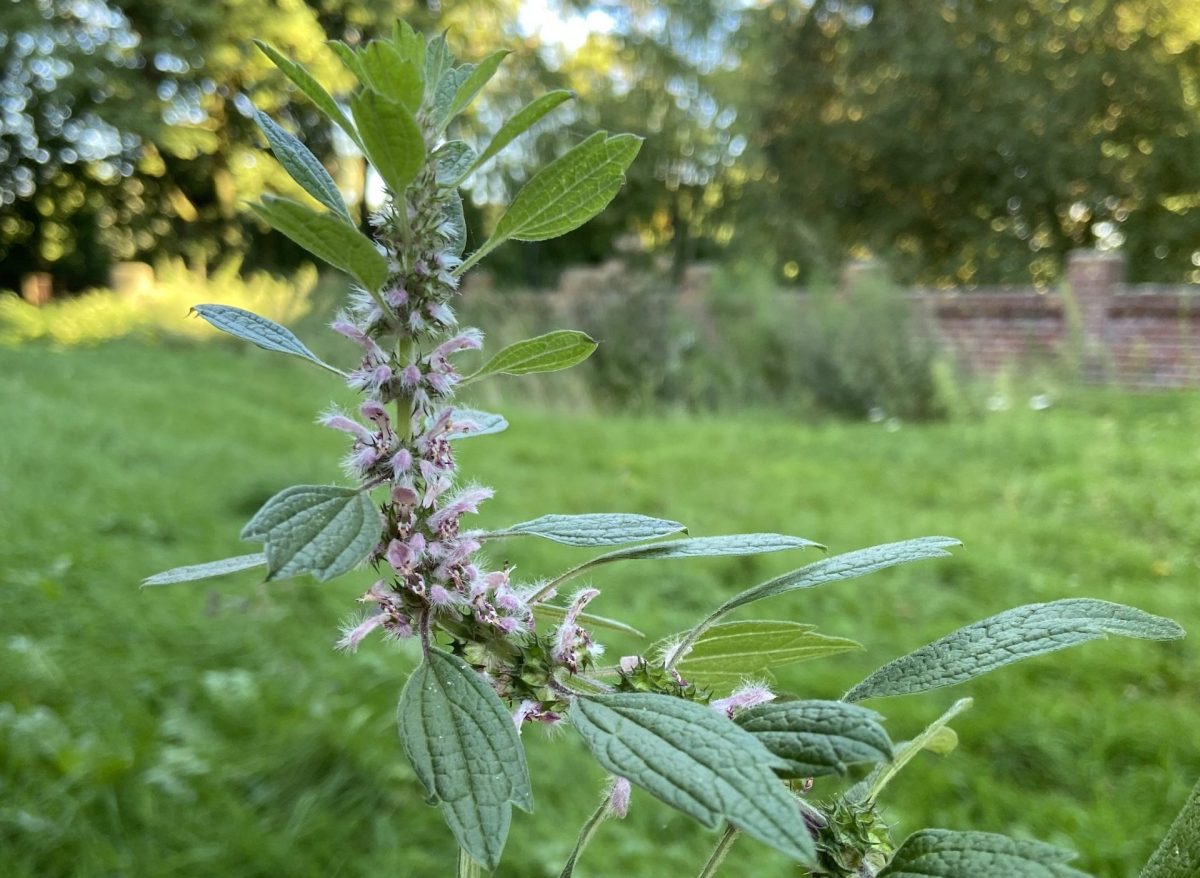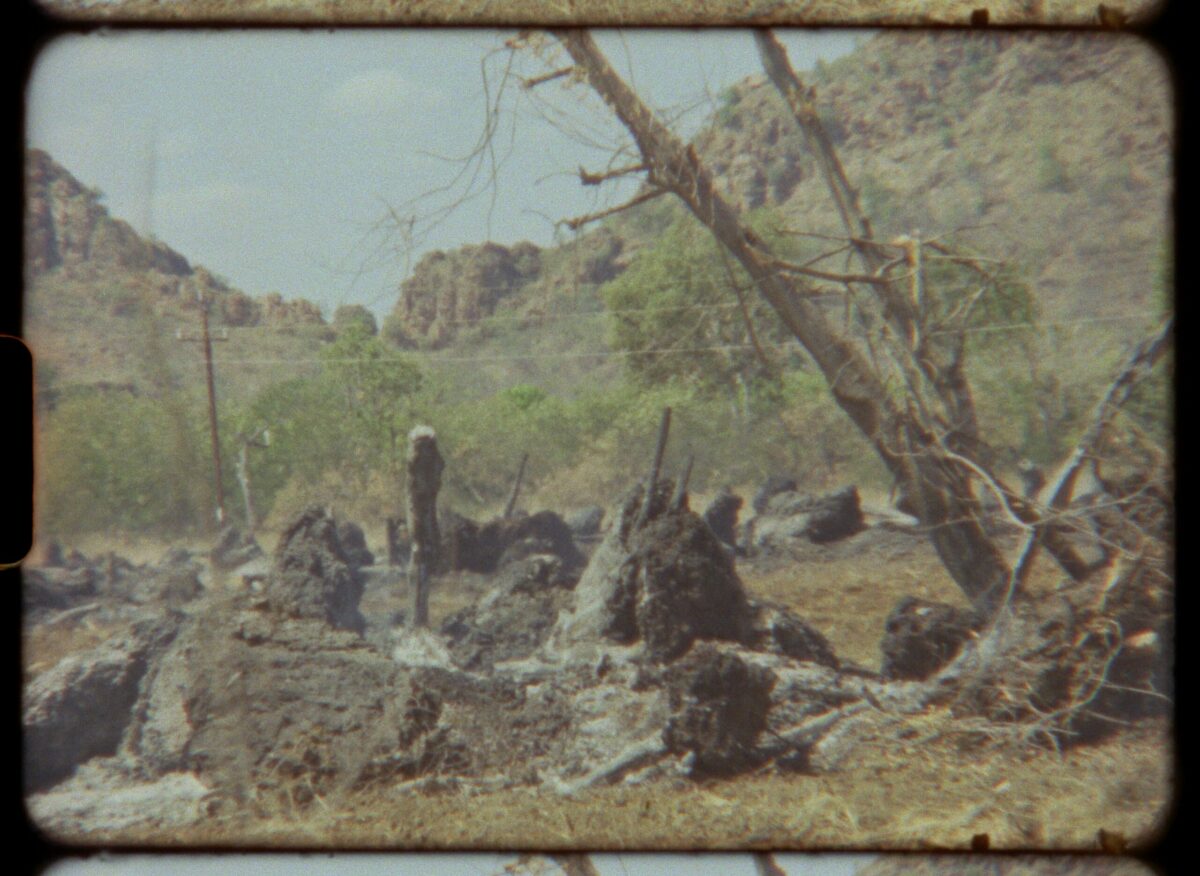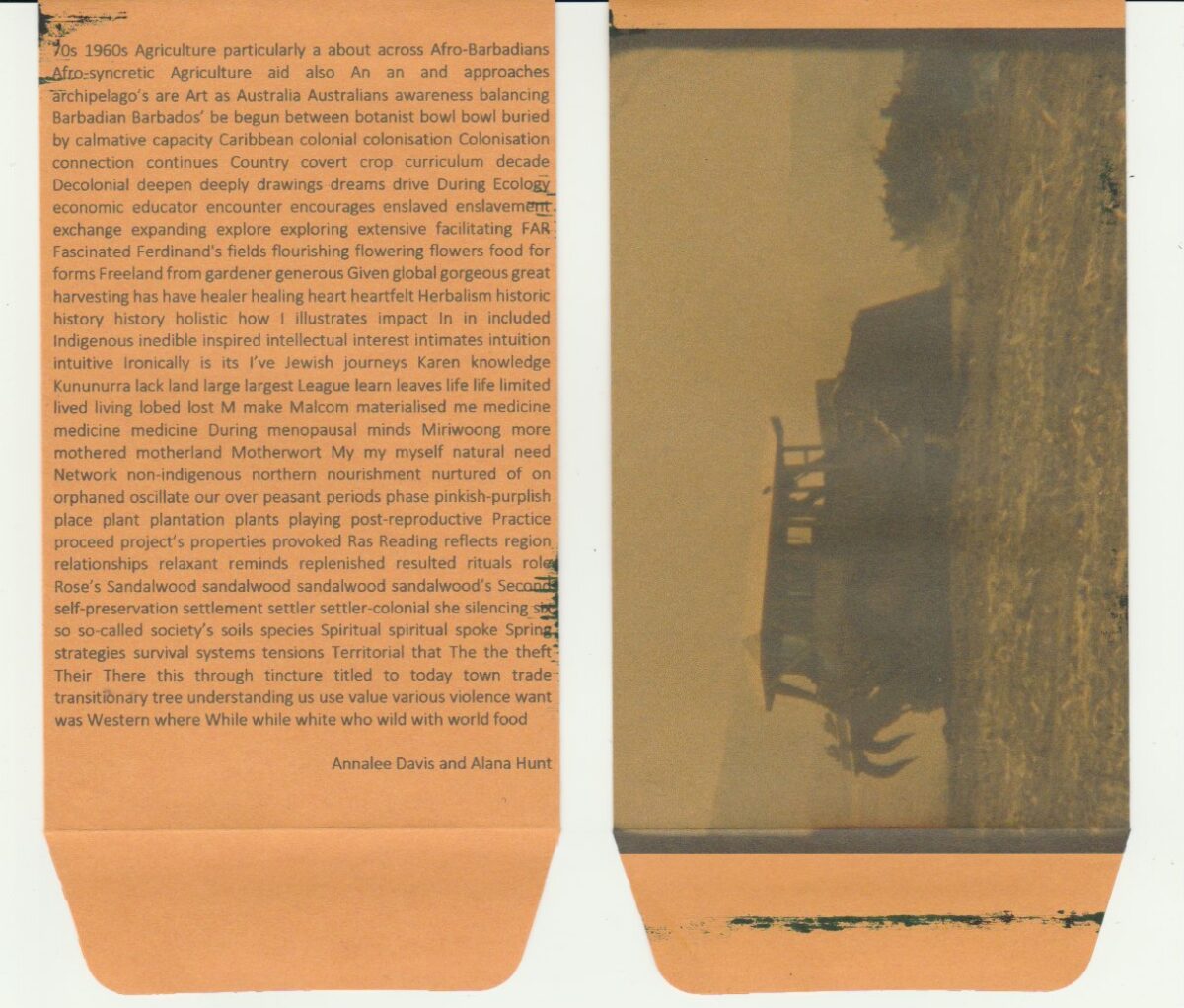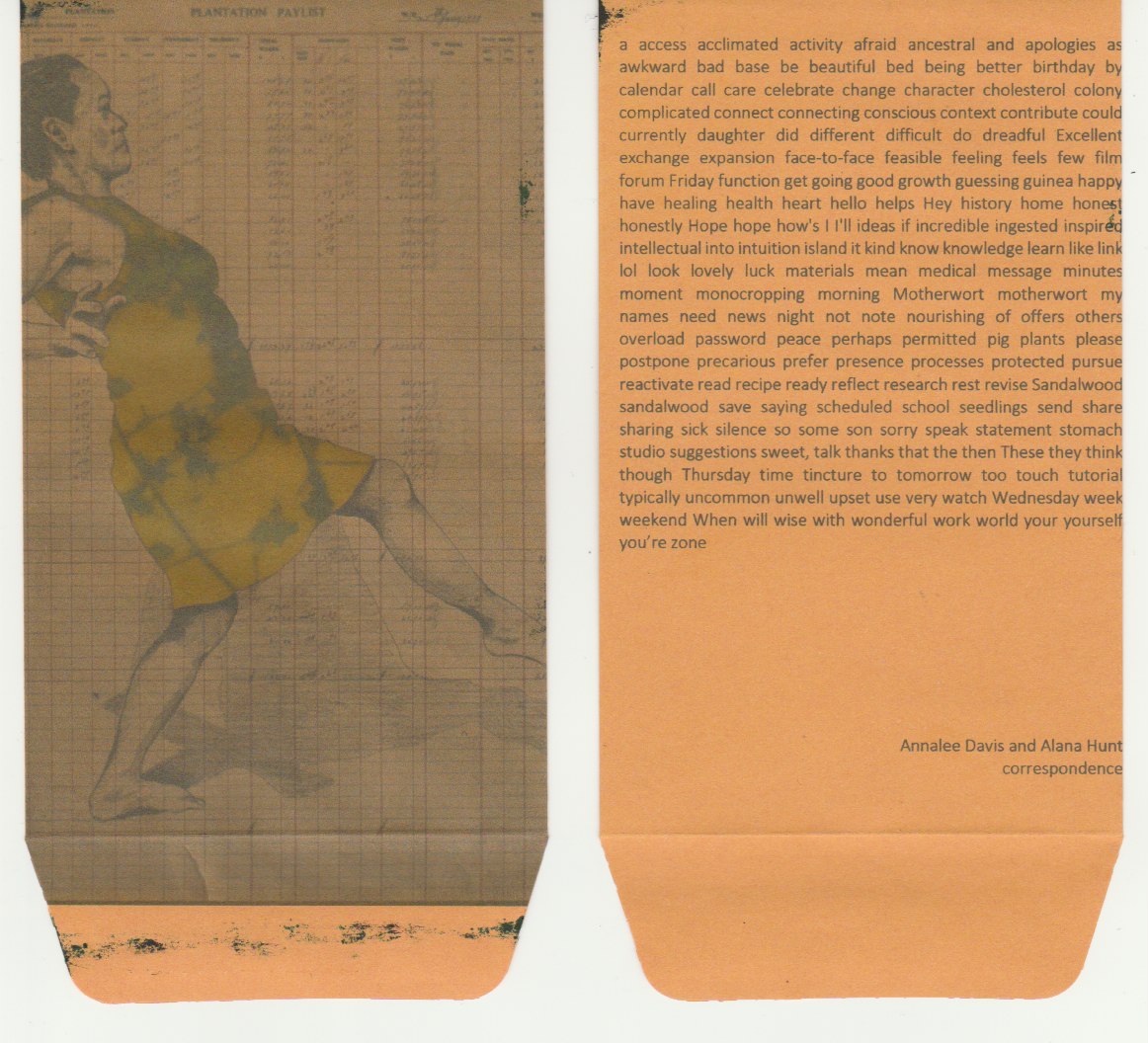Motherwort & Sandalwood
Annalee Davis and Alana Hunt share stories of plantations across colonised and post plantation contexts in the Caribbean and Australia. Their exchange builds on an exploration of the language used to describe their own encounter moving away from using the head and working with the heart.


Annalee Davis, Motherwort
My interest in Motherwort was provoked by Ras Ils, a Barbadian spiritual educator, healer, botanist, and gardener who spoke of its historic use by Afro-Barbadians as a menopausal aid. While exploring my post-reproductive phase of life, I included this plant in six large drawings titled Second Spring. Fascinated by how the living world is so extensive and generous, my awareness of this gorgeous pinkish-purplish flowering plant with deeply lobed leaves continues expanding.
Given Barbados’ colonial curriculum, my limited awareness of Motherwort reflects my lack of understanding of the value of so-called wild plants. Their connection to the history of enslavement and covert Afro-syncretic rituals resulted in silencing enslaved society’s knowledge systems, buried for self-preservation.
Malcom Ferdinand’s book Decolonial Ecology illustrates how the Caribbean lost its motherland through the colonial project’s plantation history. An orphaned region, Motherwort reminds me of the archipelago’s need to be mothered, of fields nurtured and soils replenished, facilitating holistic relationships with the land through peasant strategies for survival and flourishing.
In Karen M. Rose’s The Art & Practice of Spiritual Herbalism, she intimates that Motherwort encourages us to proceed from the heart and deepen our intuition through transitionary periods. I have begun harvesting Motherwort leaves and flowers to make a tincture for its calmative and relaxant properties, balancing my intellectual drive with more intuitive and heartfelt approaches to life.
Alana Hunt, Sandalwood
There are tensions I want to explore through the sandalwood tree. Tensions that oscillate between nourishment and violence. Sandalwood has a great capacity for healing as a natural medicine while also playing a role in the colonisation of the place where I’ve lived for over a decade, as a settler myself.
The town of Kununurra materialised on Miriwoong Country in the 1960s and 70s through settler-colonial dreams of a great northern food bowl, inspired in the minds of white Australians by an encounter with the Freeland League for Jewish Territorial Colonisation. Agriculture as land theft. Agriculture as settlement. Ironically, today the largest crop in this ‘food bowl’ is the inedible sandalwood tree.
During this exchange initiated by the FAR Network I want to learn more about sandalwood’s history in Western Australia (particularly its economic impact); global trade journeys of Indigenous and non-indigenous species of sandalwood; and its capacity for healing across various forms of medicine.
-
Correspondence

